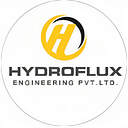Enhancing Common Effluent Treatment Plants (CETP) Performance with Hydroflux Engineering Pvt Ltd
Introduction
In the domain of wastewater management, the establishment and operation of a Common Effluent Treatment Plant (CETP) are critical processes, overseen by regulatory bodies such as the Maharashtra Pollution Control Board (MPCB). Hydroflux Engineering Pvt Ltd brings its expertise to the forefront to optimize CETP performance. This comprehensive article delves into crucial considerations for achieving superior outcomes, covering inlet design standards, operational parameters, reliability, heavy metals, and the non-potable reuse of effluent.
Inlet Design Standards
Effluent Flow Considerations
The foundation of a well-designed CETP lies in Hydroflux Engineering’s meticulous approach to inlet design standards. Effluent flow, a pivotal factor, dictates the type and extent of required treatment. Comprising preliminary and primary treatment units, CETPs, with Hydroflux’s expertise, implement secondary and tertiary treatment methods to eliminate pollutants. The design not only addresses current needs but also allows for future expansion, making efficient use of land while considering natural grades and subsurface conditions.
Regulatory Benefits
Hydroflux Engineering Pvt Ltd recognizes CETPs as a strategic solution for industries grappling with wastewater management. Beyond efficiently treating complex commercial waste, these plants offer a practical means to alleviate the regulatory burden associated with treated wastewater disposal. Hydroflux’s well-thought-out layouts, factoring in snow drift probabilities and prevailing wind conditions, contribute to the overall effectiveness of the treatment plant.
Operational Parameters
Dilution Ratio and Algal Benefits
Operational efficiency, a hallmark of Hydroflux’s solutions, is key to a successful CETP. With low operating costs and collective treatment capabilities, CETPs become tailored solutions for treating highly complex industrial waste. Ensuring a dilution ratio of at least eight-to-one is crucial to prevent downstream water issues. Hydroflux’s incorporation of live algae in effluent proves advantageous, producing photosynthetic oxygen during daylight hours and enhancing the treatment process.
Reliability
Measuring and Enhancing Reliability
Reliability, the linchpin of Hydroflux-engineered CETPs, is measured against expected values, as prescribed by MPCB. A strong correlation between reliability and biological oxygen demand (BOD) is indicative of satisfactory biological degradation. To enhance reliability, Hydroflux emphasizes meticulous attention to operating conditions, ensuring that performance consistently meets or exceeds design expectations.
Heavy Metals
Efficient Metal Removal
Hydroflux Engineering Pvt Ltd plays a pivotal role in addressing heavy metals in industrial wastewater through rigorous treatment processes. These processes address pollutants like COD, BOD, TSS, Nitrogen, Phosphorus, Chloride, Fluoride, Sulphate, and Chloride. Hydroflux incorporates a bacterial consortium, including Ochrobactrum, Sphingomonas, Comamonas, Cupriavidus, and Xanthomonas, instrumental in reducing chemical oxygen demand and ammoniacal nitrogen. Stricter adherence to guidelines on metals in wastewater, especially toxic elements like aluminum and manganese, is imperative to prevent environmental damage.
Non-Potable Reuse of Effluent
Maximizing Efficiency in Reuse
CETPs engineered by Hydroflux stand out as optimal choices for the non-potable reuse of effluent. Conducting a thorough survey of wastewater quantity and quality is crucial before opting for a Hydroflux-engineered CETP. Studies reveal that Hydroflux’s solutions can achieve efficiency levels ten to twenty percent higher than standard integrated efficiency, making them a sustainable option for estate industries. Emphasizing strict effluent discharge standards, limiting chemical use, and continuous seeding of microorganisms are key strategies to maintain consistently high effluent quality.
In conclusion, Hydroflux Engineering Pvt Ltd, with its expertise in wastewater management, brings forth a holistic approach to CETP design and operation. Through meticulous planning, operational finesse, reliability enhancement, heavy metal removal, and strategic effluent reuse, Hydroflux ensures not only regulatory compliance but also contributes to sustainable wastewater management practices.
